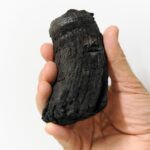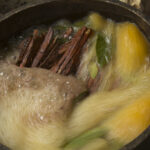New Scientist
Image: Sam Howzit
The mucus produced by jellyfish is rich in a compound that is vital to some cosmetics and drugs. The finding could help combat rising numbers of some jellyfish species.
Japan’s soaring jellyfish population, thought to be a result of artificial reefs, overfishing and climate change, has caused many difficulties, including a blockage at a nuclear plant. But except as a restaurant delicacy, people have few uses for jellyfish. Now their disposal could become economical.
Kiminori Ushida at the Institute of Physical and Chemical Research in Wako, Japan, extracted mucus from five species of jellyfish and found it was rich in a family of sugary proteins called mucins (Journal of Natural Products, DOI: 10.1021/np060341b). Obtained today from cow salivary glands or pig stomachs, mucins allow cosmetics to retain moisture and are the basis of synthetic mucus.








